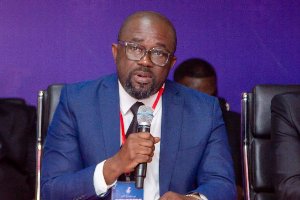The Ghanaian Times supports President Nana Addo Dankwa Akufo-Addo’s call for a collective effort to sustain the gains made under the ‘Green Ghana Project’ (GGP) over the last three years.
The Green Ghana Project is a tree-planting measure the government of President Akufo-Addo is spearheading to curb the incessant degradation of our forests, which has been ongoing for years.
Most often simply referred to as Green Ghana, it has a designated day for tree-planting, dubbed ‘Green Ghana Day,’ with the maiden one held on June 11, 2021.
The gains are that since its introduction, over 42 million trees have been planted, while the target for 2024 is 10 million, to make the figure 52 million.
It is obvious no tree-planting exercise will have a 100 percent survival rate, and so the rise in the 67 percent survival rate in 2021 to 81 percent in 2023 is highly commendable.
However, this must not make Ghanaians complacent but forge ahead to increase the rate to at least 98 percent, which means not more than 200,000 of the trees should die.
The Ghanaian Times thinks if this happens, it will be a sign that Ghanaians are now serious about sustaining their green environment.
This point is being made on the basis that Green Ghana is not a novelty project to sustain the country’s environment, but the previous measures obviously did not get the needed attention and support.
Thus, it has become imperative for every Ghanaian to heed President Akufo-Addo’s call to ensure the success of the GGP.
It can be recalled that there had been such previous measures as the 1994 Forest and Wildlife Policy to replace that of 1948; the 2012 Ghana Forest and Wildlife Policy to replace the 1994 Forest and Wildlife Policy; the 1999 Forest Plantation Development Fund established to support the private sector with funding for commercial forest plantation investment; the 2001 National Forest Plantation Development Programme; and its relaunch in 2010 to plant about 30,000 hectares of trees per year in all administrative municipals of the country.
There is a need to find out why all these laudable initiatives failed to give cause for the introduction of Green Ghana and see how the lessons can guide the GGP to success.
Generally, it is said that climate change, human behaviour, and institutional factors like policy and governance failure undermine measures to ensure environmental sustainability.
In the face of this, the government cannot just call for support but also check factors that unnecessarily deplete the country’s green environment, such as indiscriminate felling of trees and galamsey, which the government is already seriously fighting.
After all, the experts say climatic and institutional factors can be controlled when laws and regulations guiding behaviour are effective.
The Ghanaian Times thinks advocacy can also play a significant role, so public education about the need to preserve the environment must be increased and sustained.
It is likely that if people are made to appreciate the ecosystem services the green environment provides, such as cleaning the air, purifying water, reducing chemical and noise pollution, and cooling the streets, as well as the economic loss valued in billions of dollars when the environment is not preserved, their support for Green Ghana will come readily.
Editorial News of Monday, 10 June 2024
Source: ghanaiantimes.com.gh













